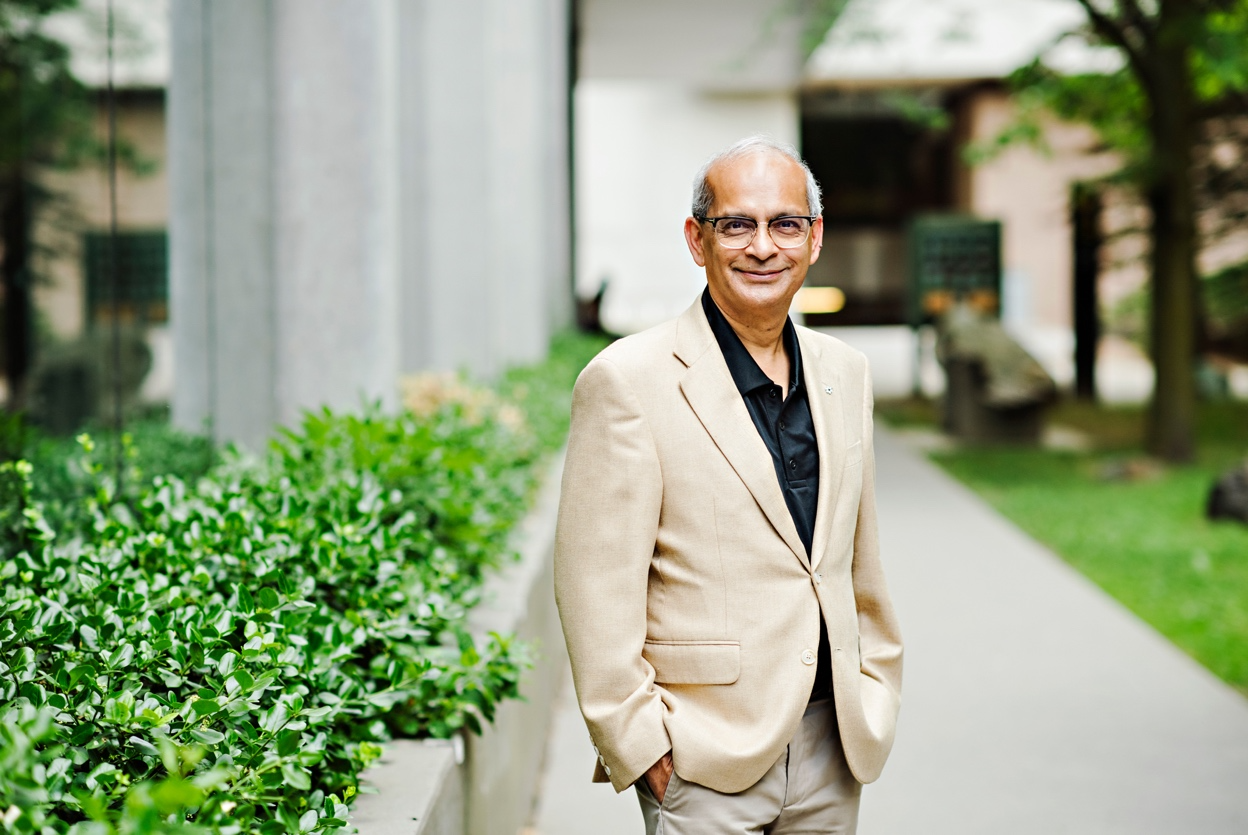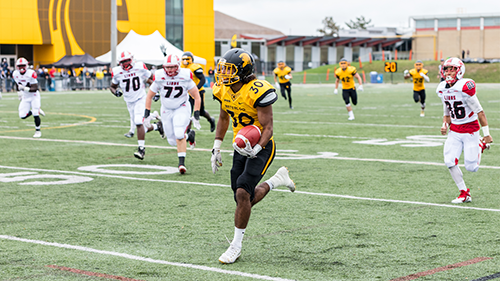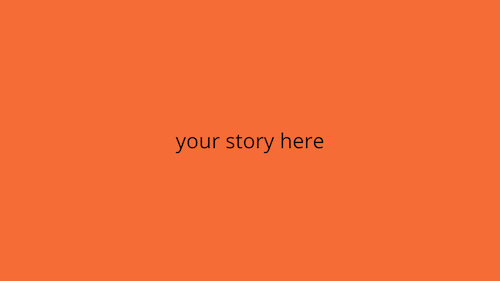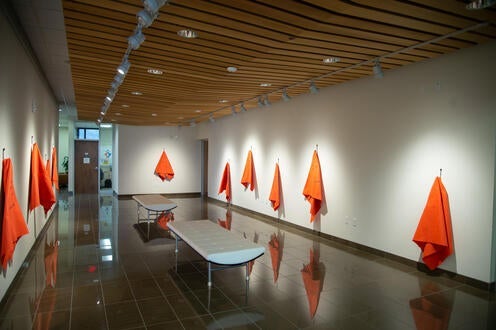Editor:
Brandon Sweet
University Communications
bulletin@uwaterloo.ca
President's Forum set for October 6

Join the virtual President’s Forum for a conversation with President Vivek Goel as he shares his perspectives and opportunities for the University.
This forum is the first of three sessions that will explore themes from the University’s strategic plan. On October 6, President Goel will be joined by a panel of Waterloo senior leaders to explore the future of work and how the University develops talent for a complex future.
The panelists include:
- David DeVidi, Associate Vice-President, Academic
- Jeff Casello, Associate Vice-President, Graduate Studies and Postdoctoral Affairs
- Norah McRae, Associate Provost, Co-operative and Experiential Education
- Sanjeev Gill, Associate Vice-President, Innovation
Following the discussion, President Goel and Provost James Rush will give an operational update on the fall term and discuss the University’s plans the winter term and beyond.
Get your questions answered during the live Q&A, moderated by Marilyn Thompson, associate provost, human resources.
The event takes place Wednesday, October 6 from 1:30 p.m. to 2:45 p.m. online. Register now.
Ask a question as part of registration, send your questions to coronavirus@uwaterloo.ca or tweet to #UWforum.
Moving beyond invention towards equitable innovation

By Stephanie Longeway. This article was originally published on Waterloo News.
“Innovation is not invention, and is not only new high-tech gadgets,” said Dan Breznitz, as he kicked off his keynote at the Waterloo Innovation Summit on September 28. It is "the complete process of taking new ideas and devising new or improved products and services.”
Breznitz is the chair of Innovation Studies at the University of Toronto and author of a new book titled, Innovation in Real Places: Strategies for Prosperity in an Unforgiving World. He joined the Summit on social and economic prosperity in conversation with Waterloo’s President, Dr. Vivek Goel, to discuss the process of innovation and challenge the audience to look at new models of innovation-based growth that enable communities to recognize their own advantages in the global market.
Breznitz told to a virtual crowd of more than 150 that leaders and policymakers often aspire to copy the high-tech model created in Silicon Valley, but not only is Silicon Valley impossible to recreate, it is fraught with inequities. He explained that “the miracle”, or breakthrough idea, is just one stage of the innovation process. It does not on its own drive localized social and economic prosperity because inventions do not create jobs or local re-investment unless they are nurtured and developed further.
The innovation challenge for Canada, said Breznitz, is that we’re very good at invention and research, but we need to move beyond invention to scale prototypes for commercialization.
Reducing barriers to innovation
Dynamic change happens when policy transforms alongside the communities and innovators shaping our nation. The Summit’s panel explored how businesses and governments must do a better job at engaging new voices and reducing barriers if we want to move beyond our current innovation models and champion equity and social impact.
Jacob Glick, vice president of public policy at TELUS and senior executive fellow at the Centre for International Governance Innovation (CIGI), explained that “innovation isn’t an end goal, but a means to an end” that benefits society. He noted that our current Canadian process is not equitable, particularly when it comes to infrastructure. Rural and Indigenous communities have less access to infrastructure, like broadband and 5G technologies, that are readily available in urban centres. He noted that this is a solvable problem that can be fixed with better policy and planning.
Tabatha Bull, CEO of the Canadian Council for Aboriginal Business, agreed that policies supporting more equitable infrastructure needs to be prioritized. She added that equitable access to financing needs to be addressed. She has seen that Indigenous innovators are far too often viewed as “riskier” from a lender perspective, putting them at a disadvantage.
The panelists discussed how Canadian businesses and governments should prioritize more voices and diverse thinking when it comes to innovation. Bessma Momani, professor at the University of Waterloo and senior fellow at CIGI, said that Canada should “tap into the talent” already within our society. She noted that racialized and immigrant communities bring different perspectives and experiences that challenge our old ways of thinking and spur more innovation.
“Build back better”
As we move through the pandemic, Momani noted that “build back better” has become a global mantra — a recognition that our old models were not working and need to be improved. The great news, she said, is that there is no shortage of good ideas or talent in Canada, but we do need political will and social protection policies to make meaningful economic change.
The pandemic has shown us just how resilient and innovative we are when faced with a global challenge. It has also shined a spotlight on the issues and inequities in our society that can no longer be ignored. The conversations at the Waterloo Innovation Summit have articulated how we can change our innovation models to be more equitable and prosperous. Industries and governments must embrace new perspectives and policies that support innovation that improves the quality of life for all Canadians.
A championship mindset powered by alumni support

A message from the Office of Advancement.
Support from Waterloo alumni allowed Warriors football stars Tre and Tyrell Ford to devote themselves to academics and athletics — and become leaders on and off the field. Now, the brothers are helping the team pursue a provincial championship while attracting other promising student-athletes to Waterloo.
In the 2020-21 Report on Giving, you’ll find more stories about donors who are investing in Waterloo talent — so both individuals and communities can thrive.
Beyond Digital special event with Microsoft and RBC coming up soon

By Matthew King.
Preparing for the workforce of the future and being ready to thrive in Canada’s digital acceleration means developing the work-ready skills that are in demand now and in the future. There are many ways for students, new graduates, and professionals to invest in developing these relevant skills including work-integrated learning, industry certifications, and post-secondary education.
“Our country is on the brink of a skills revolution,” says RBC president and CEO David McKay who believes our workforce is in the midst of a skills overhaul.
McKay, along with Microsoft Canada president Kevin Peesker will join University of Waterloo President and Vice-Chancellor Vivek Goel in an expert panel. Moderated by Norah McRae, associate provost, co-operative and experiential education (CEE), the panel will examine the skills needed as we head towards a technological transformation.
Beyond digital. Accelerate with the skills you need will be a virtual discussion, open to the University of Waterloo community, as well as students and young professionals across Canada, on Tuesday, October 5, 2021 at 3:00 p.m. (EDT).
“In the digital economy, every job is a tech job and every Canadian student should have the opportunity to meaningfully participate in the workforce, regardless of their area of study” says Peesker. “To accomplish that goal, private and public sector organizations must work together to provide students with the skills, experiences and agility they need to land their first job and succeed throughout their careers.”
A key part of the discussion will centre around how industry and universities can work together preparing the next generation of workers to think about their career path in a new, ever-changing way.
“This workforce is going to need foundational skills to prepare them for several different jobs and roles, as opposed to a single career path.” McKay went on to say, “This is setting up a quiet crisis across Canada – and virtually every nation around the globe – with future, young and established workers feeling unprepared for what the jobs of the future will look like, let alone the skills needed to do them.”
Find out more and register for the event.
If Trauma Could Echo project seeks stories

A message from Conrad Grebel University College.
If Trauma Could Echo is a community-based project that acknowledges and grieves the untold stories of trauma collected from students, staff, and faculty at the University of Waterloo. This project accompanies Yasmeen Nematt Alla's exhibit at the Grebel Gallery, Not Traumatic Enough for a Shock Blanket.

When creating Not Traumatic Enough for a Shock Blanket, Yasmeen Nematt Alla posed the question to her community: What stories do we begin telling with, “I wouldn’t call it traumatic but...”. Using some of the answers to her question, Yasmeen took narratives that are not seen as worthy of being traumatic experiences and placed them on objects that carried the words’ magnitude and weight while letting the audience bear witness to the truth of these experiences and, by extension, carry some of the weight of the narratives.
Through the If Trauma Could Echo project, Nematt Alla invites the University of Waterloo community to share their stories that they begin with "I wouldn’t call it traumatic but...” and as gratitude for the offering, provides a small blanket embroidered with an abstracted excerpt from the story. This exchange offers an opportunity for Nematt Alla to embrace the community from afar, acknowledging their pain and grief as significant and "enough". During a time where we have become accustomed to living with distance and without the embrace of those we care for, this exchange offers participants the care and caress of a blanket made with love, especially for them.
For more information and to participate in the project, please visit the If Trauma Could Echo website.
Link of the day
When and Where to get support
Students can visit the Student Success Office online for supports including academic development, international student resources, leadership development, exchange and study abroad, and opportunities to get involved.
Instructors can visit the Keep Learning website to get support on adapting their teaching and learning plans for an online environment.
Course templates are available within your course in LEARN to help you build and edit your content and assignment pages quickly.
The following workshops, webinars, and events are offered by the KL team (CTE, CEL, ITMS, LIB):
- Independent Remote Course Design Essentials, self-directed, continuous self-enrollment course in LEARN.
- Independent Blended Course Design (iBlend), self-directed, ongoing
-
Thirty Minute Thursdays– PebblePad – Offered: September 30, October 7, October 21, October 28, November 11, November 18, November 25, 12:00 noon to 12: 30 p.m.
Employees can access resources to help them work remotely, including managing University records and privacy of personal information. Here are some tips for staying healthy while working from home.
Stay informed about COVID cases on campus by consulting the COVID case tracker.
The Writing and Communication Centre has virtual services and programs to help undergrads, grad students, postdocs and faculty members with academic writing.
- Meet with writing advisors in one-to-one appointments to brainstorm, draft, revise, and polish. No time for an appointment? Try email tutoring for undergrads.
- Beat isolation and make writing progress at weekly Virtual Writing Cafés for grad students and faculty or PJ-Friendly Writing Groups for Undergrads.
- Take an online workshop or apply to our popular Dissertation Boot Camp program.
- Faculty can request custom in-class workshops for their courses, or the WCC can facilitate any existing workshops for student groups.
Co-op students can get help finding a job and find supports to successfully work remotely, develop new skills, access wellness and career information, and contact a co-op or career advisor.
The Centre for Career Action (CCA) will be expanding some in-person services for fall 2021. The Tatham Centre will be open with front-desk support beginning September 7, with limited in-person appointments and co-op consults beginning September 20. All services will continue to be offered virtually this term. Book an appointment online or visit our Live Chat to connect with our Client Support Team. The CCA is here to help.
If you feel overwhelmed or anxious and need to talk to somebody, please contact the University’s Campus Wellness services, either Health Services or Counselling Services. You can also contact the University's Centre for Mental Health Research and Treatment. Good2Talk is a post-secondary student helpline available to all students.
While the Library continues to focus on digital resources and consultations, our spaces are open for the fall term. Dana Porter Library is open Monday to Friday, 9 a.m. to 5 p.m., and Davis Centre Library is open Monday to Friday, 9 a.m. to 11 p.m., and Saturday and Sunday, 11 a.m. to 5 p.m. for drop-in individual study space, bookable individual study rooms, drop-in access to computers and printers, book pick-up services and IST Help Desk support. Special Collections & Archives and the Geospatial Centre will be accessible by appointment. Library staff are available for questions via Ask us. Full details on current services and hours are available on the Library’s COVID-19 Update webpage.
The Faculty Association of the University of Waterloo (FAUW) continues to advocate for its members. Check out the FAUW blog for more information.
The University of Waterloo Staff Association (UWSA) continues to advocate for its members. Check out the UWSA blog for more information.
The Sexual Violence Prevention and Response Office (SVPRO) supports all members of the University of Waterloo campus community who have experienced, or been impacted, by sexual violence. This includes all students, staff, faculty and visitors on the main campus, the satellite campuses, and at the affiliated and federated Waterloo Institutes and Colleges. For support, email: svpro@uwaterloo.ca or visit the SVPRO website.
The Indigenous Initiatives Office is a central hub that provides guidance, support, and resources to all Indigenous and non-Indigenous campus community members and oversees the university Indigenization strategy.
The Waterloo Indigenous Student Centre, based at St. Paul’s University College, provides support and resources for Indigenous students, and educational outreach programs for the broader community, including lectures, and events.
WUSA supports for students:
Peer support - MATES, Glow Centre, RAISE, Women’s Centre - Visit https://wusa.ca/peersupport to book an appointment either in person or online for the Fall term!
Food Support Service food hampers are currently available from the Turnkey Desk 24/7 in the Student Life Centre. Drop off locations are also open again in SLC, DC, DP, SCH and all residences.
Co-op Connection all available online. Check https://wusa.ca for more details.
Centre for Academic Policy Support - CAPS is here to assist Waterloo undergraduates throughout their experience in navigating academic policy in the instances of filing petitions, grievances and appeals. Please contact them at caps@wusa.ca. More information is available.
WUSA Student Legal Protection Program- Seeking legal counsel can be intimidating, especially if it’s your first time facing a legal issue. The legal assistance helpline provides quick access to legal advice in any area of law, including criminal. Just call 1-833-202-4571.
Empower Me is a confidential mental health and wellness service that connects students with qualified counsellors 24/7. They can be reached at 1-833-628-5589.
When and Where (but mostly when)
Healthy Warriors at Home(Online Fitness)
Warrior Rec Registration. Starts September 7. A wide range of programs are being offered this term. Intramural deadline: September 13, 11:00 a.m. Instructional deadline: September 19, 11:59 p.m. Register online.
Warriors vs. Laurier Blood Donation Battle. Join your fellow Warriors, donate blood and help us win the Blood Battle against Laurier for a second year in a row. Set up a profile or add the PFL code: UNIV960995 to your account if you have a blood.ca account already. Questions? Contact WarriorsInfo@uwaterloo.ca.
Drop-in to Warrior Virtual Study Halls on Wednesdays from 5:30 p.m. to 7:00 p.m. Come together in this virtual space to set goals and work independently or in groups each week.
Renison English Language Institute continues to offer virtual events and workshops to help students practice their English language skills.
Waterloo Innovation Summit, Tuesday, September 28.
Waterloo Womxn + Nonbinary Wednesdays (W3+) presents Invisible Stories, Sound(Mapping) Inequality, and Responsible Representationwith panelists Lai-Tze Fan, Jessica Thompson, and Jin Sol Kim, Wednesday, September 29, 12 noon to 1:00 p.m. MS Teams.
Decolonizing the Meanings of Research: A lifelong process of learning, unlearning and relearning responsibilities, Wednesday, September 29, 12 noon to 1:30 p.m.
Noon Hour Concert: Fire and Rain, Wednesday, September 29, 12:30 p.m. online.
Truth & Reconciliation, and Indian Residential Schools: Keynote for the National Day for Truth and Reconciliation with Dr. Kathy Absolon, Wednesday, September 29, 1:00 p.m. to 2:30 p.m.
Fusion Conference 2021: Advances and Emerging Opportunities in Financial Technology registration deadline, Thursday, September 30.
Continuous Improvement and Change Management Community of Practice (CI&CM CoP) meeting, Thursday, September 30, 9:00 a.m. to 10:00 a.m. Register for this event.
“Remember Me, Remember Us” Community Walk hosted by Healing of the Seven Generations, Thursday, September 30, 10:00 a.m. Walk begins at 300 Frederick St. in Kitchener.
School of Planning - Virtual Induction Ceremony, Thursday, Septmeber 30, 6:00 p.m. to 7:30 p.m. via WebEx.
“A brief history of colonialism, intergenerational trauma, and genocide of Indigenous Peoples in Canada” with Dr. Michael Dan, Thursday, September 30, 7:00 p.m.
CrySP Speaker Series on Privacy, “Cybersecurity and the Protection of Dissent,” featuring Glencora Borradaile. Monday, October 4, 1:30 to 2:30 p.m.
NEW - WaterLeadership training seminar, “Knowledge Mobilization 101 for Water Researchers,” Tuesday, October 5, 1:00 p.m.
Beyond digital. Accelerate with the skills you need, Tuesday, October 5, 3:00 p.m.
NEW - President's Forum, Wednesday, October 6, 1:00 p.m.
Safeguarding Science workshop– Waterloo faculty, staff, and students involved in research using biological, chemical, radiological, or nuclear materials or technology are invited to join Public Safety Canada on MS Teams, Wednesday, October 6, 1:30 p.m. to 3:45 p.m. Please register.
Positions available
On this week's list from the human resources department, viewable on the UWaterloo Talent Acquisition System (iCIMS):
- Job ID# 2021-7268 - Manager, Maintenance and Security Services - Campus Housing, USG 8
- Job ID# 2021-7209 - Account Manager (Toronto East Region) - CEE - Co-operative Education, USG 10 - 11
- Job ID# 2021-7199 - Facilities Coordinator - Co-operative and Experiential Education Business Services, USG 6
- Job ID# 2021-7257 - Information Systems Specialist (Business Systems Analyst) - IST, USG 9 - 11
- Job ID# 2021-7226 - Systems Integration Specialist (Research Security) - IST, USG 11 - 13
- Job ID# 2021-7246 - Preschool Teaching Assistant - Psychology - ECEC, USG 6
- Job ID# 2021-7213 - Student Financial Services Associate - Finance, USG 6
- Job ID# 2021-7254 - Executive Assistant to the Vice-President, Research and International - Research Strategic Initiatives, USG 8
- Job ID# 2021-7207 - Apprentice Cook - Food Services, CUPE
Secondments/Internal temporary opportunities
- Job ID# 2021-7156 - CEE Workplace Sexual Violence Education Coordinator - HREI and Co-operative Education & Career Services, USG 9
- Job ID# 2021-7222 - Coordinator, Marketing and Communications - Print + Retail Solutions, USG 6
- Job ID# 2021-6708 - Information Systems Specialist - CEMC, USG 9
- Job ID# 2021-7238 - Accounts Payable & Inventory Assistant - Food Services, USG 4
Affiliated and Federated Institutions of Waterloo opportunities